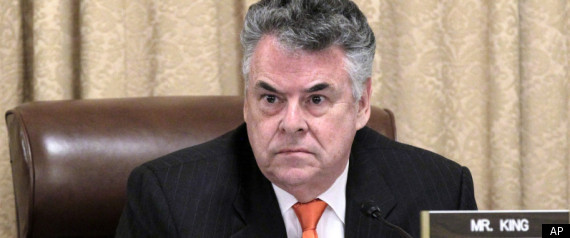NEW YORK -- Goldman Sachs is quietly pushing back against accusations that it may have broken the law, as employees of the firm have met with a pair of famous financial commentators and helped convince them the "vampire squid" is actually a victim.
Nearly two months after a Senate panel released a scathing assessment of Goldman Sachs, referring the findings to the Justice Department for possible criminal prosecution, Goldman's PR machine appears to be in full, if covert, swing. This week, celebrity journalist Andrew Ross Sorkin and widely cited analyst Richard Bove each changed his mind about the firm after meeting with Goldman employees.
"I have completely changed my attitude about whether they did something wrong," Bove told The New York Times. "Goldman Sachs is the scapegoat of our time."
Bove, who had placed a "sell" rating on Goldman's stock and had loudly expressed his pessimistic views on the company, recently got some special assistance: Goldman walked with him through the report, the Times says.
And now he has apparently recanted, releasing a new note that opens: "It is becoming increasingly apparent that a terrible wrong may have been done to Goldman Sachs."
This reversal comes just days after a similar revelation from the editor of the Times' financial blog, DealBook. Sorkin had earlier questioned Goldman's integrity, in a column he links to in his latest post. But now, he says, his mind is changed. He, like Bove, apparently met with Goldman:
The whopping 639-page Senate report on the financial crisis, stuffed with damning emails from financial players, accuses Goldman of profiting off a massive bet against the housing market, misleading clients to whom it sold the investments it was betting against.
Not only that, but executives also misled Congress when asked to explain their actions, alleged Sen. Carl Levin (D-Mich.), chair of the Senate Permanent Subcommittee on Investigations, which composed the report.
New York City prosecutors served the bank with subpoenas this month, demanding additional documents. The Manhattan district attorney joined the Justice Department and the Securities and Exchange Commission in investigating the firm, Reuters reported.
When the Senate report was released in April, Goldman put up a relatively rote defense. A Goldman spokesman said the firm's executives were truthful in their testimony, and added that the firm disagreed with many of the panel's conclusions.
But now, in meeting with prominent commentators, it appears the firm is attempting to dismantle the conclusions the report has drawn.
Full Article
Source: Huffington
Nearly two months after a Senate panel released a scathing assessment of Goldman Sachs, referring the findings to the Justice Department for possible criminal prosecution, Goldman's PR machine appears to be in full, if covert, swing. This week, celebrity journalist Andrew Ross Sorkin and widely cited analyst Richard Bove each changed his mind about the firm after meeting with Goldman employees.
"I have completely changed my attitude about whether they did something wrong," Bove told The New York Times. "Goldman Sachs is the scapegoat of our time."
Bove, who had placed a "sell" rating on Goldman's stock and had loudly expressed his pessimistic views on the company, recently got some special assistance: Goldman walked with him through the report, the Times says.
And now he has apparently recanted, releasing a new note that opens: "It is becoming increasingly apparent that a terrible wrong may have been done to Goldman Sachs."
This reversal comes just days after a similar revelation from the editor of the Times' financial blog, DealBook. Sorkin had earlier questioned Goldman's integrity, in a column he links to in his latest post. But now, he says, his mind is changed. He, like Bove, apparently met with Goldman:
But upon further reporting -- talking with executives at Goldman, who pointed me to other documents, and with officials in Washington, and then poring through the report, following the footnotes to the original sources and then cross-referencing them against other public records -- I have come to a different and perhaps unsatisfying conclusion for those readers looking for a big scalp: Mr. Blankfein wasn’t lying.
The whopping 639-page Senate report on the financial crisis, stuffed with damning emails from financial players, accuses Goldman of profiting off a massive bet against the housing market, misleading clients to whom it sold the investments it was betting against.
Not only that, but executives also misled Congress when asked to explain their actions, alleged Sen. Carl Levin (D-Mich.), chair of the Senate Permanent Subcommittee on Investigations, which composed the report.
New York City prosecutors served the bank with subpoenas this month, demanding additional documents. The Manhattan district attorney joined the Justice Department and the Securities and Exchange Commission in investigating the firm, Reuters reported.
When the Senate report was released in April, Goldman put up a relatively rote defense. A Goldman spokesman said the firm's executives were truthful in their testimony, and added that the firm disagreed with many of the panel's conclusions.
But now, in meeting with prominent commentators, it appears the firm is attempting to dismantle the conclusions the report has drawn.
Full Article
Source: Huffington

